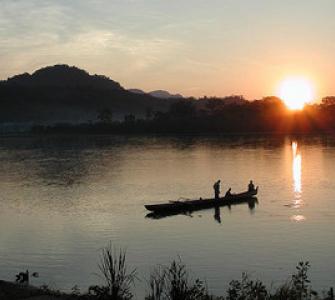The Cachuela Esperanza hydroelectric mega-project is part of the South American Infrastructure Integration Initiative (IIRSSA). It refers to a 990MW hydroelectric dam that would be built on the Beni River on the outskirts of the Cachuela Esperanza village. This would provide energy to populations in Northern Bolivia and would allow the exportation of electricity to Brazil. The feasibility report, as ordered by the Bolivian government, shows that the environmental and social damages caused by this project would be massive - more than 900Km2 flooded and almost 100,000 people affected. Despite these impacts, the government considers this to be a beneficial project and has continually vowed the desire to move forward with it.
Thanks to the financial support from the Gordon and Betty Moore Foundation, CSF will execute an exhaustive economic cost-benefit analysis that includes an in-depth study of the socio-environmental impacts of this project. The project would take place in a tropical forest zone of great biological value; furthermore, the flooding zone would threaten the nearby villages, their productive processes, and their health. The results from the analysis will provide the Bolivian government with the information needed to conclude if this is a desirable project for the Bolivian people as well as provide mitigation and compensation alternatives should the project materialize.
Analyses of infrastructure proposals like this one are of vital importance in developing countries and of paramount importance, biologically speaking. In Cachuela Ezperanza, the authorities and inhabitants’ longing for development in this zone have led them to desire any alternative that may signify investment in the region. The investigation to be conducted by CSF will allow involved stakeholders to make the best decisions for effective development and nature conservation.

